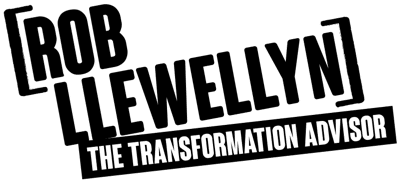Learning Culture as the Enabler of Business Transformation
In my previous article, I discussed the importance of strategy as the primary driving force in digital transformation. Strategy plays a critical role – it has potential to positively impact the three areas of transformation: people, process and technology.
In my experience as transformation advisor and consultant, I have witnessed many engagements focus primarily on technology. Admittedly, technology is very real – we can see and feel it, it’s easy to quantify and measure. However, consulting companies who take on transformation engagements fail miserably when they focus solely on technology. Others may be slightly ahead as they work on both technology and process – they embrace the idea that with the introduction of new technologies, incumbent business processes need to be reviewed and optimized. And yet it is a rare type of consulting company that embrace all three (people, process and technology).
I can understand why the “people” aspect is usually not addressed or even relegated as a zero priority. Let’s face it, folks: people are the most complex and difficult to manage. Focusing on technology is easy. Process is measurable and thus, manageable. People, and I mean specifically, culture? Not so much.
My colleague, Jane McConnel, wrote an interesting article about culture and digital transformation on Harvard Business Review. In her survey, she claims that there are specific work cultures that promote Digital Transformation:
- Strong, shared sense of purpose vs. weak, inconsistent sense of purpose
- Freedom to experiment vs. absolute compliance to rules and processes
- Distributed decision-making vs. centralized, hierarchical decision-making
- Open to the influence of the external world vs. internally focused and closed to the external world
A strong sense of purpose is key if organizations would like to create employee engagement. The “why” of a business has to be articulated consistently by the leadership in a manner that resonates with all the stakeholders. Adoption of lean principles like “fail and fail fast” creates an atmosphere of play and experimentation – basic ingredients for innovation. From a governance standpoint, top-down decision making is gradually being replaced by a sense of collaboration and trust. And these days, no business can afford to live under a rock. The market has become a bedrock of hyper-change and hyper-complexity.
And I would like to add my own ingredients that would make for a resilient company culture, not only able to weather a digital transformation, but actually facilitate it:
- Shared Values. Culturally, it is critical that businesses articulate and share core values. It’s not enough to pay lip service to them either. What’s really important to the company? How are these values lived in every operational day? Behaviorally, are these values reflected in the action of the leaders and employees? In my own personal life and my business, I offer my own core values: trust, respect and transparency. What’s yours?
- Sustainability. Most large and public businesses these days live and die by their quarterly earnings report. This is the reality they choose. Unfortunately, any strategic initiatives may not manifest business value or demonstrate ROIs in three months. Transformations by their very nature take time. I admire companies that look way into the future even if it means making an earnings sacrifice in the present. Amazon and Apple are strong brands not only because they focus on their customers but also because they think and act with the future in mind. They just keep their eyes on the prize.
A strong and vibrant company culture will help manifest a successful digital transformation. It is the tie that gently binds every employee, partner and customer to the company mission, vision and goals. In essence, the culture is the brand.
And guess what truly manifests culture in a business? The leadership team. And this is the topic for my next article.
Written by Ken Polotan
